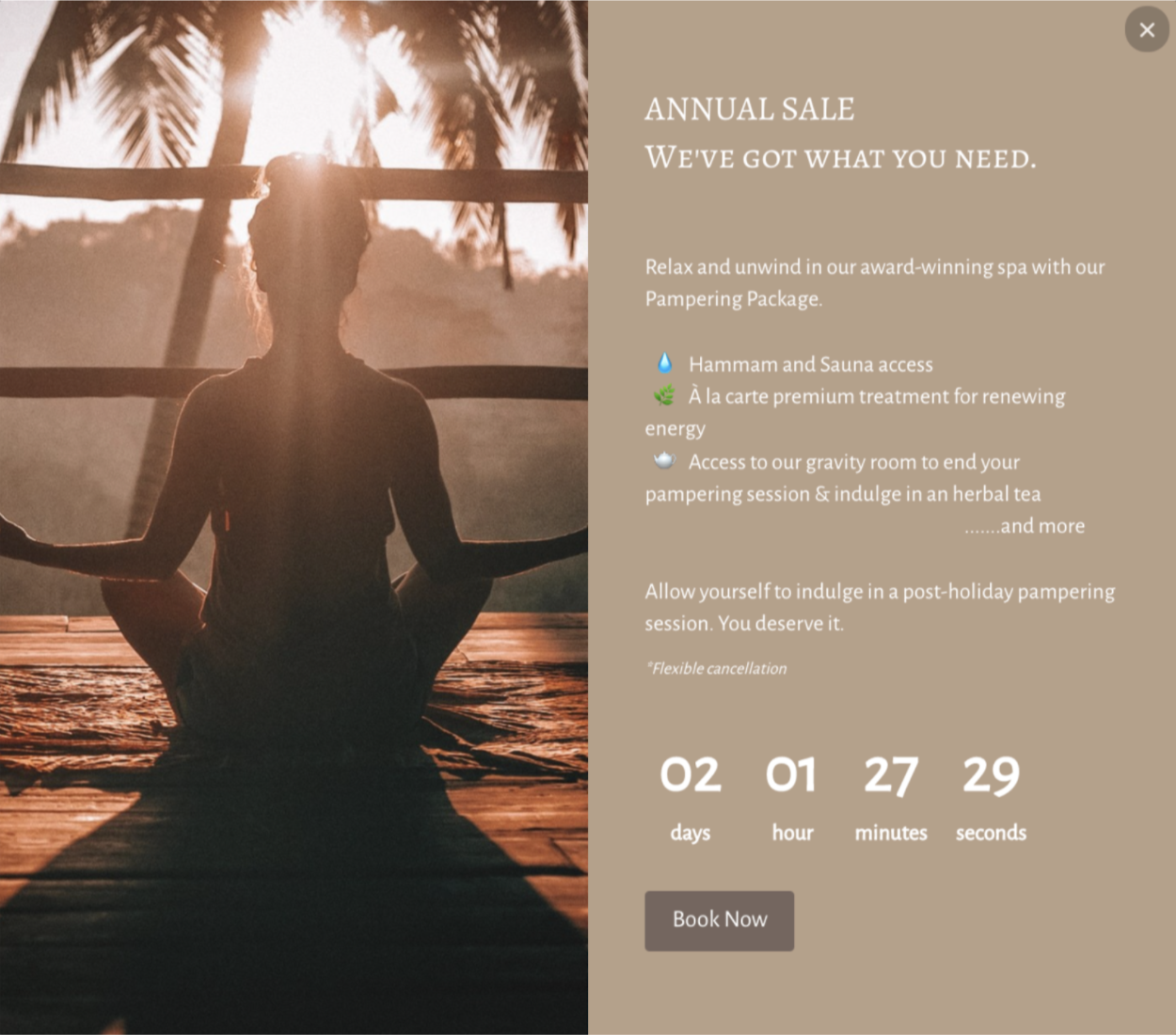There’s a vacation marketing opportunity that hoteliers need to be aware of based on traveler apprehension.
NB: This is an article from The Hotels Network, one of our Expert Partners
People don’t typically associate vacations with dread but it’s there with each and everyone, particularly during the holidays—not when the vacation is being planned or even when it’s started, but as the end of it is approaching.
The vacationers are somewhere new or sentimental (like the neighbourhood where they grew up). Their day-to-day life is on pause. They catch up with what they’ve wanted to do all year, or they just do nothing, lie around, and relax, hanging out with friends and family.
Subscribe to our weekly newsletter and stay up to date
Yet, in the back of their mind, as their vacation and the holidays come to an end, they know “real-life” is about to start again. The pit in the stomach subconsciously grows as the days of the vacation tick off, and they must soon return to what their life was like before this vacation.
According to the National Alliance on Mental Illness, 64% of people report being affected by holiday depression. This pit-in-the-stomach feeling is manifested through an amalgamation of symptoms ranging from insomnia, low energy, and irritability to lack of concentration, and anxiousness.
The best way to counteract the post-vacation blues is to book another trip! This is where the Annual Sale comes in.

There is a high likelihood that people experiencing these symptoms may not understand why they are experiencing these feelings, so they don’t understand the best way to alleviate them. And herein lies the opportunity for hoteliers. If they think about the customer journey of booking a hotel, it typically starts with the dreaming, funnels down to consideration, and filters down to a decision. Ultimately, just as the guest journey comes to an end, so does the buyer’s journey. Where does the inspiration start? Influencers? Friends? Bucket lists?
Most leisure trip bookings outside of the normal holiday periods are typically based on needs (wedding/moving/attending to family/visiting friends). There are only specific times of the year when people think they should book a holiday based on the available deals. Hotel marketers are trained—as are bookers—to buy during finite times throughout the year, such as the shopping days marketed like Black Friday, Cyber Monday, Valentine’s Day, and the various Hallmark holidays. These are holidays where people think about buying gifts for someone they love. They are looking to surprise, delight, and treat them to something special. Therefore, hotels need to create a trigger for individuals to purchase a trip for themselves, particularly as their end-of-year vacation ends.
Hotel marketers need to associate this new purchase trigger by tapping into an existing one. Hoteliers can assuage the post-holiday angst by promoting an Annual Sale tied to the New Year Resolution. The messaging should focus on wellness and reiterate the importance of self-care with a strong call to action to “Just Book It.” By leveraging an existing and well-known universal wellness proclamation, the New Year’s Resolution, hotel marketers can create an entirely new purchase trigger.

Guided session on “conscious breathwork practice” offered at One & Only Palmilla
Hotels must seize the opportunity to associate themselves with this annual ritual of New Year when travelers are most self-reflective. By associating the Annual Sale with the New Year Resolution (27% of Americans make them), it grants travelers permission to treat themselves to a wellness break and spend the money to succeed in achieving their resolutions. Though only 8% of people typically keep resolutions, the intention to keep them is there (particularly early in January). If hotels act quickly, they can capture future guests’ desire to improve themselves.
There is an additional challenge of pushing a new sale at the end of the vacation: Typically, a lot of money has been spent on transportation, lodging, food, and other forms of entertainment. Therefore, people aren’t in the frame of mind to spend even more money on the next vacation. This is why hotels need to make it very palatable and easy for the person to book during this period, with incentive-laden discounts, flexible cancel policies, and something that just doesn’t seem like another significant charge on the credit card.





